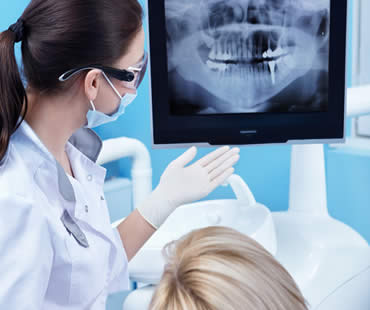What is a dental crown?
- A dental crown encases a damaged tooth completely within a custom-fit cap, or crown, fitting perfectly over the affected tooth. A dental crown is designed specifically for you and your tooth’s particular design, fit and function. It is a restorative therapy that can restore function to a tooth that may have had excessive decay, has been cracked or has recently undergone root canal treatment.
How do dental crowns work?
- A dental crown covers a damaged tooth entirely and can be used to improve not only the tooth’s appearance, but also its shape or alignment.
What is a dental bridge?
- A dental bridge makes a literal bridge between two anchor teeth, filling a gap left by a missing tooth that has either fallen out naturally or is the result of acute decay or facial trauma. Dental crowns cover the bordering anchor teeth, allowing the bridge to fit securely and to function as your natural tooth.
What materials are used for dental crowns?
- Dental crowns can be porcelain (ceramic), porcelain-fused-to-metal, or gold or other metal alloy. Porcelain or ceramic crowns can be designed to closely match the color and translucency of your natural teeth. Metal alloys are usually stronger, and are a better choice for back teeth.
Is a dental cap a crown?
- Yes! A dental cap is another name for a dental crown.
Am I a candidate for a dental bridge?
- If you are missing a tooth and you have adjacent teeth that are stable, dental bridges are for you. Even if you are missing a front tooth or a tooth that has only one border, there are types of dental bridges that could meet your needs.
Are there alternatives to a dental bridge?
- Dental implants are rising in popularity as technology has improved. A dental implant can restore a single tooth or can restore several, and are the standard of care for the replacement of a missing tooth today. Because a dental implant continues to stimulate the jawbone, it doesn’t lead to bone loss over time.
We look forward to seeing you in our Fresno dental office
 Patient Forms
Patient Forms 


